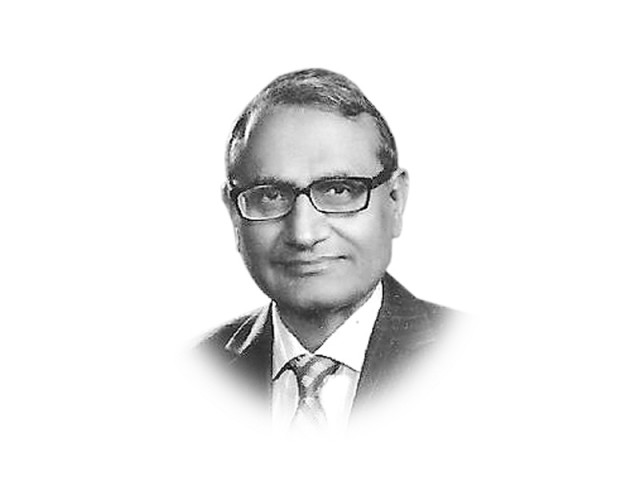Dar and the rupee
A stronger rupee brings political acclaim, but the balance of economic gains is uncertain.

pervez.tahir@tribune.com.pk
Unanticipated inflows resulting from Mr Dar’s secret hard work may well cause what economists know as the Dutch disease. A sudden increase in foreign inflows leading to currency appreciation hurts the manufacturing sector and exports. In our case, the margin of preference expected from the GSP-Plus status is likely to be neutralised by an ever-strengthening rupee. Exports are the basis of real, sustained inflows, not financial gamesmanship. Cheaper imports should benefit the consumer, but prices are notoriously sticky when they are supposed to fall. Yields from customs duties and sales tax on imports are likely to fall, adding to the fiscal woes of the government. The external debt burden and its servicing cost will come down, but the larger fiscal burden originates from domestic debt. Even remittances may slow down.
The end justified the means. Speculators, invoice manipulators, exporters, importers and investors have been threatened with dire consequences, allowed or promised favourable SROs and even given seats at the budget-making table. Pseudo-economists, blamed for an unsympathetic narrative, have been accommodated as the Punjab chief minister’s advisers, or co-opted into the Economic Advisory Council and the Taxation Advisory Committee. Some have made an entry into think tanks set up by PML-N leaders.
A stronger rupee brings political acclaim, but the balance of economic gains is uncertain. Much depends on how long the fruits of Mr Dar’s labour last. In bringing the dollar down, he has proved his capacity to achieve objectives. If only he were to deploy the same energy on fixing the tax structure, the economy would have the inherent strength to weather any storm, including the currency crisis. The concessions given for a stronger rupee, along with revenue implications of appreciation, do not make the task of preparing the next budget any easier.
Published in The Express Tribune, March 14th, 2014.
Like Opinion & Editorial on Facebook, follow @ETOpEd on Twitter to receive all updates on all our daily pieces.















COMMENTS
Comments are moderated and generally will be posted if they are on-topic and not abusive.
For more information, please see our Comments FAQ